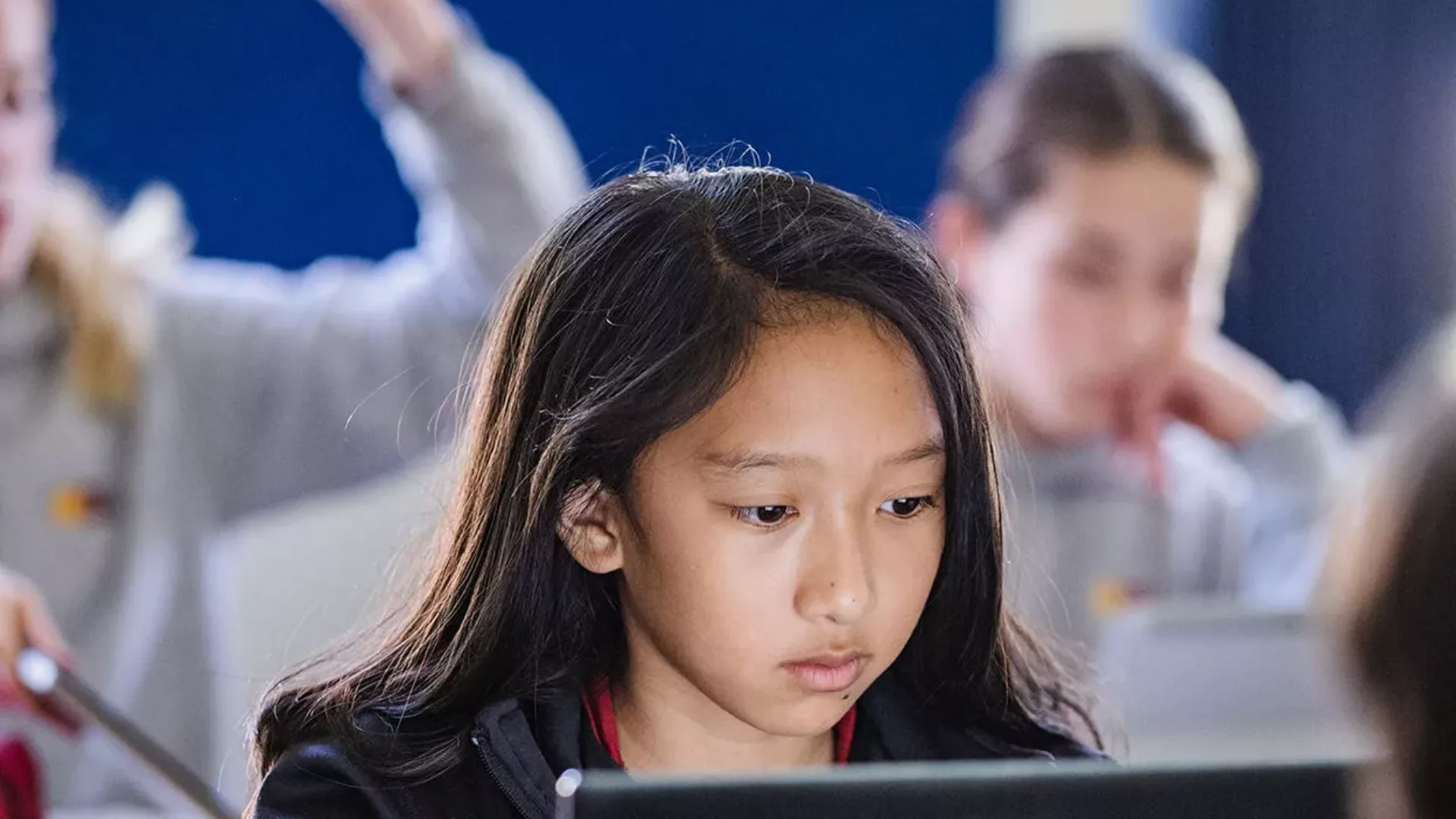EAL & SEND

“Curriculum Support aims to set students with SEND or EAL on a path to independent learning and success by developing their individual strengths, building confidence and self-esteem. We have high expectations and aim to maximise opportunities and success for all.”
—Head of Department: Mrs Véronique Morris-Aloni
Learning Differences
Teachers and parents are encouraged to relay any concerns about the students they teach to the student’s academic tutors who in turn pass these on to the Head of Curriculum Support, if necessary.
Students who access support in our highly experienced, approachable and friendly department are viewed as individuals with learning differences not difficulties. Some students arrive at LWC with diagnosed learning differences such as dyslexia or dyspraxia. Some may have a medical condition impacting on education, but we also support international students with English as an Additional Language (EAL).

Many LWC students with learning differences thrive on a combination of Quality First Teaching by subject teachers, adopting A2RH and using individual strengths and coping strategies. We appreciate that a learning difference requires greater resilience for hard work, but it is not viewed as a barrier to success. Some students require support to recognise this, develop confidence, identify their strengths and encouragement to achieve in line with their potential. They respond well to an individualised approach, tailored to their needs and help to develop skills which encourage and support independent learning.

-
Monitoring
All 1st, 3rd and L6th form are screened for literacy difficulties which might impact on learning or taking exams. The results from these tests are used as a rough guide together with subject teacher feedback over time to consider if a more detailed assessment of needs is required. Parents are informed if this is the case.
-
Referrals to Curriculum Support
Teachers and parents are encouraged to relay any student concerns to academic tutors who in turn passes them on to the Head of Curriculum Support, if necessary.
-
Additional Learning Support
Additional Learning Support for study skills, literacy and maths support might be available to students in all year groups whose academic timetables permit, but private tuition can be a solution for others. Students are not withdrawn from timetabled academic lessons to access Learning Support. Support is provided and charged for by experienced part-time Learning Support Consultants who have a working relationship with the school and are coordinated by the Head of Curriculum Support. Consultants are encouraged to liaise with teaching staff to promote a joined-up approach to a student’s needs. Lessons may take place during break time, Supervised Private Study in place of a GCSE option, after school or remotely via Teams. Lessons after school are limited to a consultants’ availability and are prioritised for boarders. We have a suite of rooms available for this purpose.
We also work closely with external specialist assessors who carry out diagnostic tests with some students who require them.
-
Staff Awareness of SEND and EAL Pupils
All teaching staff have access to information regarding a student with known SEND or EAL. This includes a One-page profile with recommendations for appropriate provision and any exam arrangements for the student. All teachers are aware of SEND difficulties and departments have a written statement of their special needs policy in their departmental handbooks. At any time, teachers may raise concerns regarding any student’s progress. The Head of Curriculum Support may visit lessons to carry out observations and offer support to teachers. An informal discussion with the student will also take place so that their voice is heard with regards any difficulties. Parents may then be contacted if a detailed assessment of needs is required.
-
Examination Access Arrangements
For those students who meet the examination boards’ criteria we can provide a range of exam access arrangements including extra time, computer readers, speech to text, reading pens and the use of laptops. To meet the criteria, in addition to diagnostic evidence, specific evidence from subject teachers is also essential as per the JCQ regulations. Prior to sitting their GCSEs, students have some opportunity to practise using exam access arrangements e.g. in internal assessments (1st to 4th form and learning support).
-
EAL
Curriculum Support meets the needs of international students in all year groups with English as an Additional Language. A student’s level of English is assessed on arrival so that appropriate support can be considered. Students receive help with their English for other subjects as well as preparing them for external qualifications such as the Cambridge B1 Preliminary for Schools, B2 First for Schools and iGCSE in English as a Second Language. Sixth form students may study for the IELTS examination.
Students are assessed on arrival so that appropriate support can be provided if required. Lessons are provided by experienced teachers in small groups and occasionally 1:1.
The international GCSE in English as a Second Language is taught in 4th and 5th Form alongside the standard GCSE in English. This has no coursework and no expectations to study literature or have a knowledge of British culture. A level 6 suffices for entry into many courses at British universities – although further qualifications, such as a satisfactory IELTS score, may also be needed. The IGCSE exam, which students take at the end of 5th form, includes modules in Listening, Reading, Writing and Speaking through a short interview.
Students in the Lower Sixth will typically follow the challenging IELTS course (CEFR C1) This is an internationally recognised qualification accepted by all British, Australian and most US universities, employers and colleges around the world. Some universities insist on the IELTS as opposed to other qualifications. Students who sit this qualification are awarded a level and this will demonstrate to universities and agencies that they have the English Language skills needed to follow an undergraduate academic course, participate in academic tutorials and seminars, carry out complex research and communicate effectively both orally and in written assignments. This qualification will also be accepted for student visa purposes. Some students who have gained a GCSE in First Language English outside of the UK may still be advised to take this qualification in the first term of Lower Sixth to ensure they meet university entrance and student visa requirements.
We have a special interest in the pastoral care of all overseas students, and we aim to help them to settle happily and smoothly into their new environment. The International Student’s Association exists to promote the interests of international students and enriches the school by drawing upon the cultural diversity with the student population.
Additional Learning Support for study skills, literacy and maths support might be available to students in all year groups whose academic timetables permit, but private tuition can be a solution for others. Students are not withdrawn from timetabled academic lessons to access Learning Support. Support is provided and charged for by experienced part-time Learning Support Consultants who have a working relationship with the school and are coordinated by the Head of Curriculum Support. Consultants are encouraged to liaise with teaching staff to promote a joined-up approach to a student’s needs. Lessons may take place during break time, Supervised Private Study in place of a GCSE option, after school or remotely via Teams. Lessons after school are limited to a consultants’ availability and are prioritised for boarders. We have a suite of rooms available for this purpose. We also work closely with external specialist assessors who carry out diagnostic tests with some students who require them.
All teaching staff have access to information regarding a student with known SEND or EAL. This includes a One-page profile with recommendations for appropriate provision and any exam arrangements for the student. All teachers are aware of SEND difficulties and departments have a written statement of their special needs policy in their departmental handbooks. At any time, teachers may raise concerns regarding any student’s progress. The Head of Curriculum Support may visit lessons to carry out observations and offer support to teachers. An informal discussion with the student will also take place so that their voice is heard with regards any difficulties. Parents may then be contacted if a detailed assessment of needs is required.
For those students who meet the examination boards’ criteria we can provide a range of exam access arrangements including extra time, computer readers, speech to text, reading pens and the use of laptops. To meet the criteria, in addition to diagnostic evidence, specific evidence from subject teachers is also essential as per the JCQ regulations. Prior to sitting their GCSEs, students have some opportunity to practise using exam access arrangements e.g. in internal assessments (1st to 4th form and learning support).
Curriculum Support meets the needs of international students in all year groups with English as an Additional Language. A student’s level of English is assessed on arrival so that appropriate support can be considered. Students receive help with their English for other subjects as well as preparing them for external qualifications such as the Cambridge B1 Preliminary for Schools, B2 First for Schools and iGCSE in English as a Second Language. Sixth form students may study for the IELTS examination. Students are assessed on arrival so that appropriate support can be provided if required. Lessons are provided by experienced teachers in small groups and occasionally 1:1. The international GCSE in English as a Second Language is taught in 4th and 5th Form alongside the standard GCSE in English. This has no coursework and no expectations to study literature or have a knowledge of British culture. A level 6 suffices for entry into many courses at British universities – although further qualifications, such as a satisfactory IELTS score, may also be needed. The IGCSE exam, which students take at the end of 5th form, includes modules in Listening, Reading, Writing and Speaking through a short interview.
Students in the Lower Sixth will typically follow the challenging IELTS course (CEFR C1) This is an internationally recognised qualification accepted by all British, Australian and most US universities, employers and colleges around the world. Some universities insist on the IELTS as opposed to other qualifications. Students who sit this qualification are awarded a level and this will demonstrate to universities and agencies that they have the English Language skills needed to follow an undergraduate academic course, participate in academic tutorials and seminars, carry out complex research and communicate effectively both orally and in written assignments. This qualification will also be accepted for student visa purposes. Some students who have gained a GCSE in First Language English outside of the UK may still be advised to take this qualification in the first term of Lower Sixth to ensure they meet university entrance and student visa requirements. We have a special interest in the pastoral care of all overseas students, and we aim to help them to settle happily and smoothly into their new environment. The International Student’s Association exists to promote the interests of international students and enriches the school by drawing upon the cultural diversity with the student population.